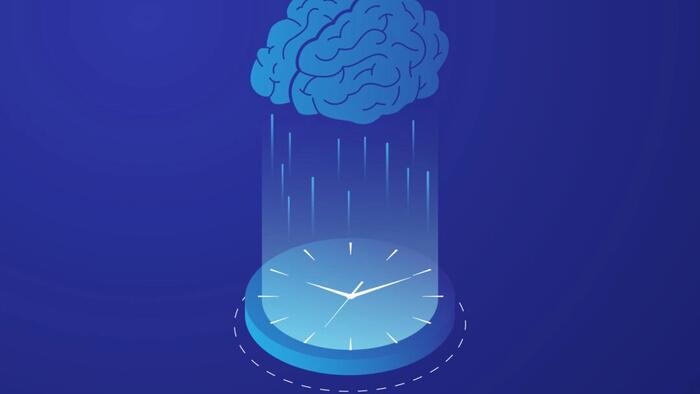Recent research highlights a compelling connection between daily exercise, sleep habits, and their lingering effects on brain function lasting up to two weeks. This groundbreaking study challenges previously held beliefs that brain activity is quick and isolated. Instead, the findings suggest that fluctuations in cognitive abilities—such as attention, memory, and overall cognitive function—are significantly influenced by an individual’s lifestyle choices over an extended time frame. As noted in the study’s press release, “even a workout or a restless night from last week could still affect your brain.” This revelation has important implications for how we understand cognition and the potential for enhancing mental health treatments through lifestyle modifications.
The research was spearheaded by Ana Triana, a doctoral candidate at Aalto University in Finland, who uniquely assumed the roles of both researcher and participant. While leading the study, she meticulously tracked her own daily activities, utilizing a combination of brain scans, smartphone data, and wearable technology. This innovative approach aimed to upset the traditional notion that only a few isolated trials adequately capture brain activity and behavior. Instead, the researchers advocated for continuous monitoring to provide deeper insight into the brain’s responses to everyday activities. Triana emphasized this perspective, indicating that human behavior and mental conditions are continually influenced by one’s environment and lifestyle choices.
Triana’s investigation sought to explore how a range of factors—physical activity, sleep quality, heart rate variations, and emotional states—interact with and imprint on the brain’s neural networks over time. The desire to go beyond isolated events drove the researchers to examine longer durations that encompass various influences in daily life. They noted that conventional methods, which typically involve brief brain scans conducted in static conditions, fail to grasp the dynamic nature of brain activity. A more nuanced understanding is crucial for appreciating how prolonged lifestyle patterns contribute to the brain’s functioning.
Dr. Nick Hayward, a physician and neuroscientist who co-authored the study, underscored the potential benefits of this approach for improving mental health treatments. By focusing on individual behavioral data and daily experiences, researchers can derive richer contextual information relevant to neuroscience. This allows for a more comprehensive examination of how various aspects of daily life shape cognitive processes. Hayward advocates that integrating insights from habitual activities into lab studies can unveil how our lifestyle choices influence the brain and may ultimately lead to better mental health interventions.
The significance of this research extends to redefining how we view cognitive health. Traditionally, there may have been a perception that immediate behaviors and activities were the primary determinants of brain function. However, these findings illustrate that our cognitive capabilities are not solely reliant on short-term changes, but rather emerge from an accumulated understanding of diverse, chronic influences. Consequently, this fosters a more holistic perspective on how lifestyle choices can either support or impair cognitive development and function.
Ultimately, the study positions daily habits—ranging from exercise and sleep to emotional wellbeing—as critical components that interact with and shape neural activity over time. By acknowledging this longer-term perspective, the research paves the way for innovative approaches to mental health treatment that consider individuals’ comprehensive lifestyle factors rather than relying solely on isolated assessments. As such, it opens up new pathways for understanding through which we can potentially enhance cognition and improve mental health outcomes in the long run.

